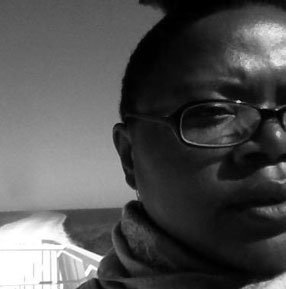there is no flash
the eyes fine tuned perhaps
consciously a first time offense
to focus on cliché heaven
a great white trope: the white light
the first time I nearly died
I reached too towards imaginary white
lands of white hands draped in white robes white rings glowing
above white heads
instead I forced my niece to enter my mind her first
word light an opened fist of light mouthed
see the light see the light see the light
some midnight season of new moons an annihilation
of the obscenity of the bright white flesh
of a glistening cold moon poking through the night
my father says show me the
poet
who knows absolute darkness is the light
my niece sings this little light of mine & points in the darkness
this little light see the light of mine I’m gonna let see the light
friends there is no light at the end
only hunger muted & sharp blinding rage
of the mind’s kaleidoscopic emptiness oh it is blindingly white
Copyright © 2015 by Metta Sáma. Used with permission of the author.
“This poem began as a response to a conversation between Terrance Hayes and Patricia Smith hosted by Cave Canem in New York City. Hayes read poems on photography and talked a bit about the photographic eye. In drafting the poem, I began to think about the interconnectedness of photography, death (some cultures believe that taking photographs equals the stealing of souls), the white light (as flash), the white light (as tunnel), the white light (as heaven), the white light (that surrounds saints and Christ), the white light (as the white gaze), and my ongoing thoughts about the white gaze of the photographer on the person of color as subject.”
— Metta Sáma

